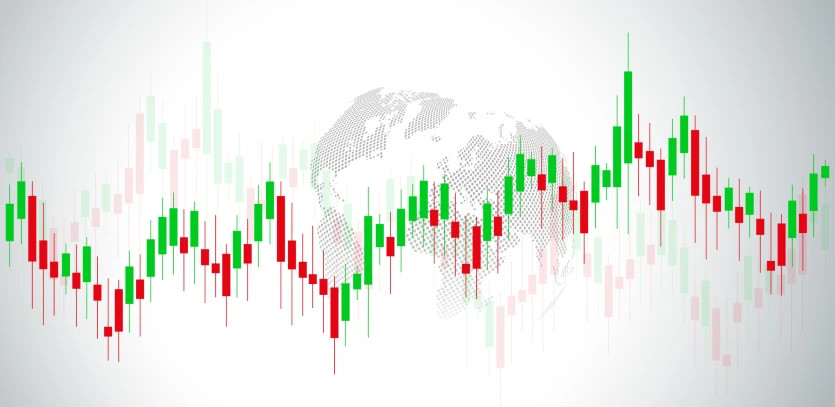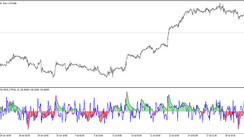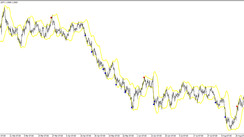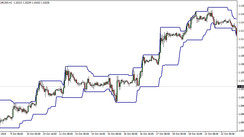This article was provided by EagleFX team.
Throughout history, there has never been a time during which it was more important to protect one's personal and private information. It's unfortunate, but it's simply part of the world that we live in today. Stemming from this need for privacy have come demands from Forex traders asking brokers to offer them a path to anonymous FX trading. Here, we'll talk about why brokers ask for personal information and explain how it is now possible to trade Forex without having to share any personal details or payment information.
What are KYC documents?
KYC, which is short for Know Your Customer, is an anti-money laundering initiative that was first unveiled in the mid-2000s. The KYC document collection process enables banks and other financial institutions to understand their customer's financial dealings in an effort to be able to serve them while limiting the risks of Money Laundering and Financing of Terrorism.
Forex brokers, which handle the intake of deposits, along with the processing of withdrawals, have traditionally required their clients to submit KYC documents, which were then reviewed and either approved or denied. In cases where documents are denied, so too is the right to trade within the broker's platform.
KYC documents consist of identification proof and proof of residence. In the case of ID proof, only a government-issued photo ID is accepted. Proof of residence can consist of any one of the following documents, which must be dated within the past 90 days:
- Bank statement
- Credit card statement
- Utility Bill
- Phone Bill
- Tax Statement
Depending on the broker, other document types may be accepted as proof of residence. The bottom line here is that in providing this information, especially when it is paired with payment information (more on that below), can create a substantial risk.
When you hand over this type of information, it immediately becomes at risk of being compromised by hackers. In rare cases, it could even be stolen and used by the actual broker.
Broker-related scams have actually become quite rare, but they have not yet been entirely eradicated. Now, assuming that you use more than one broker, which most traders do, and the risk is multiplied.
KYC document requirements can present an entirely different type of problem for those who simply do not have the required proofs to submit to the broker. The fact is that not everyone has a government-issued ID or one of the accepted address proofs.
When more than one person lives in a residence, typically only one person will have utilities in his or her name. It is actually very common for traders to not have the proof required to successfully open a Forex trading account and thus they are shut out and left unable to trade as they wish. Anonymous FX trading is, therefore, the perfect solution for these individuals.
Why must payment details be shared with brokers?
In the case of online payments such as PayPal or Skrill, there is no need to share personal payment details. However, these deposit methods are much less popular than the preferred payment methods of credit/debit cards and bank wire transfers. Both of these payment methods require the sharing of personal information, yet it is easy to see why traders want to use them to fund accounts. Credit and debit cards typically offer protection in the case of scams, while bank wire transfers offer an extremely secure way to transfer larger amounts of money.
The problem with funding an FX account with a credit or debit card is that you must enter the card numbers, including expiration date and CVV code, into the broker's payment system in order to make a purchase. In addition, brokers often as for a photo of the physical card (with all but the final 4-digits blacked out) as required proof that the depositor is indeed the cardholder and not a thief that has stolen the card information. So, once you've funded an account via credit or debit card, you've shared all of the information required for the card to be used by someone other than yourself.
Bank wire transfers aren't much better, as they also require the sharing of some personal information. Many brokers ask for wire transfer receipts as proof that the incoming funds are on the way. Some may ask for this information to assist them with locating the incoming transfer and insuring that it is credited to the correct account. Bank wire transfers are clearly more private than credit or debit card payments, but they too can pose risks.
Why would a broker permit anonymous trading?
Any unregulated broker can decide to bypass KYC documents requirements by accepting cryptocurrencies as a banking method. Digital coins were created with anonymity in mind and therefore offer up a solution to the problem that brokers have traditionally had with skipping the KYC process. As an added bonus, cryptocurrencies such as Bitcoin offer both the broker and trader an affordable and fast way to move funds back and forth. In most cases, crypto-based transactions are completed in an hour or less. Everyone wants fast transfers and cryptocurrencies offer exactly that.
While there may be some concerns over trading with an FX broker that allows for private trading, the fact of the matter is that even the largest, more reputable firms are starting to allow this. Why? Well, because it's good for business. That group of individuals who do not have the KYC documents needed to be approved to trade is substantial. Allowing them into the platform is a good move financially. Additionally, they receive a boost in business by allowing the other group - individuals who have not yet traded because they refuse to share their personal and payment information - to register and trade on their own terms.
How can I trade Forex while remaining anonymous?
Step one will be the seek out a broker that accepts Bitcoin (or another cryptocurrency) deposits and is willing to bypass the KYC document requirements. The number of brokers that permit private trading is growing daily, so this should be easy enough, just keep in mind that you'll still want to compare brokerages to ensure that you like the platform and will be trading under acceptable conditions. There's no need to accept poor pricing and trade processing in exchange for skipping past the KYC process. There's no trade-off, so remember that.
Once you've selected a broker, you will still need to register an account. The registration process should consist of nothing more than providing your name and email address. Yes, your email address will still be required and really, you'll want to provide an email that you actually use. The broker will use email contact to alert you to any issues, confirm deposits and withdrawals, send out monthly statements, and much more. You'll likely have to click an email confirmation link to confirm that you do in fact own the email address that you provided, so don't bother with providing a fake email address.
As for funding your account, this will need to be done only using Bitcoin (or other accepted digital currencies). The broker will provide you with an e-wallet address to send the funds to, along with any applicable instructions regarding the deposit process. If you've never purchased or used a cryptocurrency before, fear not. The process is actually very simple and straightforward. It is also very fast. Once you send a cryptocurrency payment, the broker should receive it within an hour or less. In most cases, the payment will arrive instantly, but the brokerage may still need to confirm that the payment has arrived and has come from you.
Are there risks associated with anonymous Forex trading?
In the past, the KYC document requirement has been viewed as a sign of broker reliability. As with all things though, processes have changed and evolved and we're now at a point where we no longer view KYC as the bar for broker reliability. Trading anonymously, however, is only a possibility when selecting an unregulated broker. Strict regulations require that the Know Your Customer rules be followed with no exceptions. The good news? There are a growing number of offshore brokerages that are reliable. Many of these have been in business quite some time and have maintained an excellent reputation. Do exercise caution when selecting a firm to trade with, but do also bear in mind that lack of regulation doesn't automatically mean that a broker isn't to be trusted.
The bottom line is that anonymous FX trading is now a reality and the number of brokers making this possible will continue to grow almost daily. If for whatever reason you want or need to trade without having to provide your personal details and/or payment information, you now can. If you know someone who has these needs, now is the time to spread the word that they too can now trade Forex. Never has there been a better time to start trading, and now, the requirements for doing so have become more flexible than ever.





